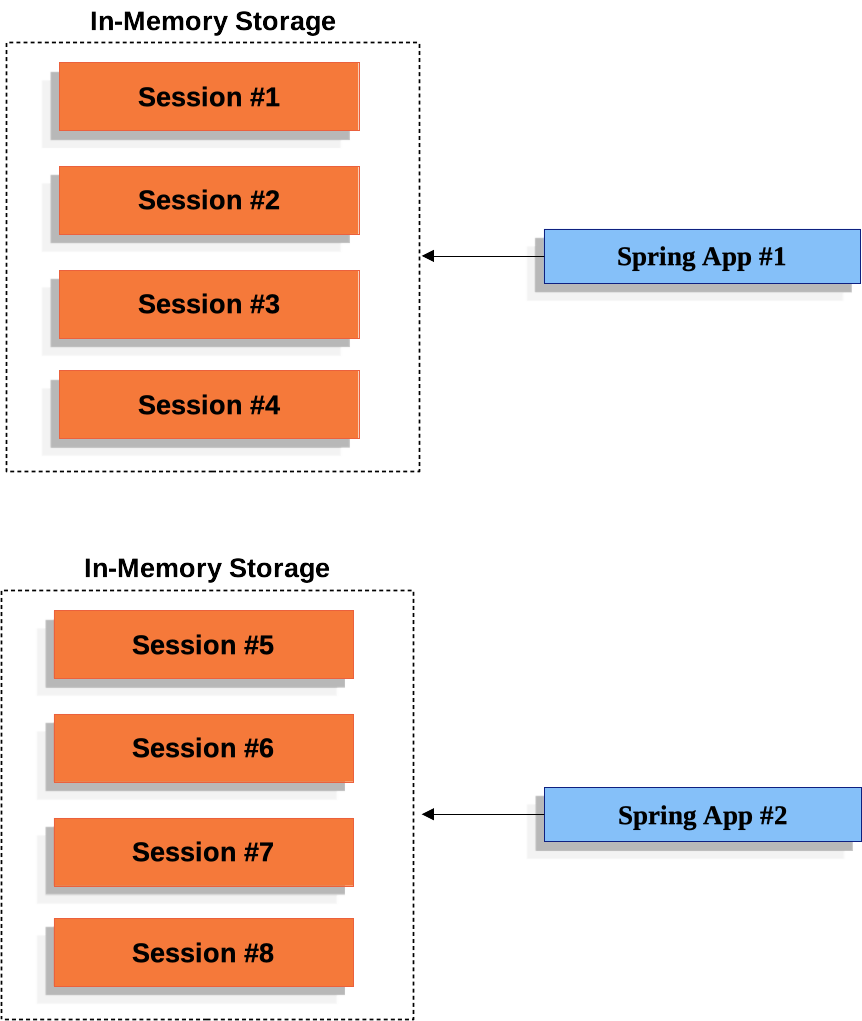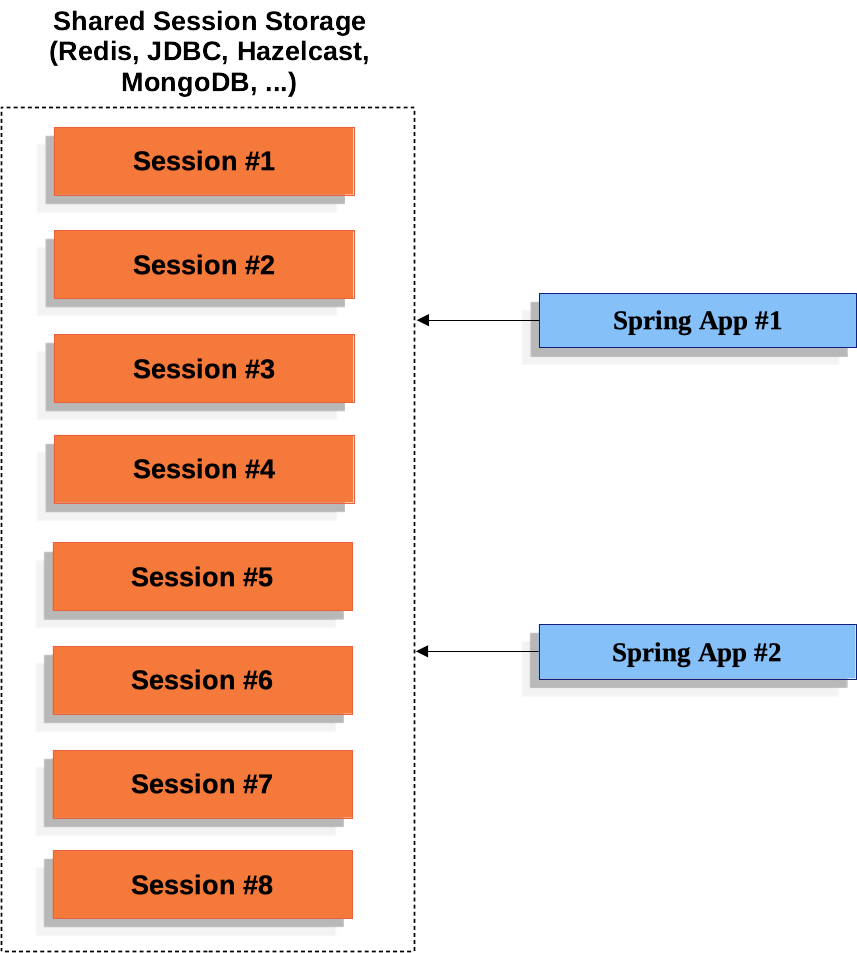Spring Session
Rob Winch; Vedran Pavić; Jay Bryant; Eleftheria Stein-Kousathana
Spring Session provides an API and implementations for managing a user’s session information.
Spring Session provides an API and implementations for managing a user’s session information while also making it trivial to support clustered sessions without being tied to an application container-specific solution. It also provides transparent integration with:
-
HttpSession: Allows replacing the
HttpSessionin an application container-neutral way, with support for providing session IDs in headers to work with RESTful APIs. -
WebSocket: Provides the ability to keep the
HttpSessionalive when receiving WebSocket messages -
WebSession: Allows replacing the Spring WebFlux’s
WebSessionin an application container-neutral way.
Understanding the Problem That Spring Session Solves
When a user interacts with a web application, the server creates a session to keep track of their activity. This session may store information such as user preferences, login status, and shopping cart contents. However, sessions can be problematic in a distributed environment, as they are typically stored on the server’s memory.
To better understand the problem that Spring Session solves, let’s first visualize the following diagram:

In the diagram above, each Spring application is storing its sessions in a place where only themselves can access them, usually in the server’s memory, but this can be a problem in a distributed environment. Imagine a situation where Spring App #2 receives a request with Session #3, the application will not be able to read the session data because it is stored in Spring App #1’s memory. To solve this problem we need to implement some kind of Shared Session Storage as we can see in the diagram below:

With the above setup, the sessions become available for every application that has access to the session storage.
Spring Session provides a layer of abstraction between the application and the session management. It allows the session data to be stored in various persistent stores, such as relational databases, NoSQL databases, and others.
With Spring Session, you can use the same API to manage sessions, regardless of the persistent store used. This makes it easier to switch between stores without changing the application code. Spring Session also provides features such as session expiry and cross-context communication between different web applications.
Overall, Spring Session simplifies the management of user sessions in web applications, making it easier for you to focus on building the core features of their applications.
Here are some common use cases for Spring Session:
-
Distributed web applications: If you have a web application distributed across multiple servers, managing user sessions can be challenging. Spring Session can help by storing the session data in a shared database or Redis, allowing all servers to access and update session data.
-
Session scalability: In a large web application with many concurrent users, storing sessions in memory on the server can lead to scalability issues. Spring Session allows you to store session data in a persistent store, improving scalability and reducing the risk of out-of-memory errors.
-
Session backup and recovery: Storing session data in a persistent store can also provide a mechanism for backing up and recovering session data in case of server failure or downtime.
Spring Session Community
We are glad to consider you a part of our community. The following sections provide additional about how to interact with the Spring Session community.
Support
You can get help by asking questions on Stack Overflow with the spring-session tag.
Similarly, we encourage helping others by answering questions on Stack Overflow.
Source Code
You can find the source code on GitHub at github.com/spring-projects/spring-session/
Issue Tracking
We track issues in GitHub issues at github.com/spring-projects/spring-session/issues
Contributing
We appreciate pull requests.
License
Spring Session is Open Source software released under the Apache 2.0 license.
Minimum Requirements
The minimum requirements for Spring Session are:
-
Java 17+.
-
If you run in a Servlet Container (not required), Servlet 3.1+.
-
If you use other Spring libraries (not required), the minimum required version is Spring 6.0.x.
-
@EnableRedisHttpSessionrequires Redis 2.8+. This is necessary to support Session Expiration
At its core, Spring Session has a required dependency only on spring-jcl.
|

